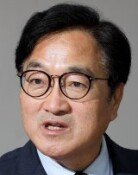[Opinion] Hear Ye Retainers
We do not hold the four-fold class structure of the dynasty era with high esteem. We hold the view that the hegemony of the literati and their vested interest in civilian government denigrated commerce, blocked industrialization, and ultimately caused the country`s ruin. This is true from the perspective of the modern society and its values for whom industrialization is the supreme task.
In actuality, the principal reason why the dynasty fell is the delay of industrialization and the consequent underdevelopment of the military. If Choson dynasty could produce the kind of battle ships and canons that the West and Japan could make, it would not have fallen so easily. Although Kojong changed the name of the era to Martial Light and tried to accelerate the process of industrialization and military development, it was too late.
To conclude, however, that the civilian government`s reluctance to industrialize could have been helped by overturning the four-fold caste structure is shortsighted.
Civilian rule in the dynasty has its weaknesses and strengths. If the failure to industrialize is its weakness, its strength is the elevation of the country`s public service. Confucian political philosophy values highly the people`s confidence and pushes leaders to severely restrain their own ambitions, making the country a public possession. Hence, the power structure, leadership, economic structure all become public and the rulers tried to conduct politics with the consent of the people. The principles of civilian government also created an amazingly thorough record-keeping system which increased public accessibility to politics, transparency, and accountability.
The Choson dynasty saw the height of civilian rule and its representative cultural symbol became its books and documentation. What is the significance of this? Moreover, those records bring to life the dynasty politics as if it were recorded on audio and video, so detailed that it seems one can hear the people of that age breathing. What does this tell us? That a crystal clear civilian government won the people`s trust and that the rule of trust was the secret to the dynasty`s 519 year life.
If civilian rule is both the weakness and strength of the four-fold class structure, one should discard the weakness and preserve the strength. No matter how much society has changed from an agricultural society to an industrialized society, the fundamental principle that the nation, business, and other organizations should strive to serve the public and remain transparent.
If this is so, we can keep alive the strengths of principle of civilian government while planning greater industrialization and technological advancement.
These days, the operation of the government and public bodies has nothing transparent about it. It is as if the people are looking at a far away mountain hidden in thick fog. These organizations appear to drag along the trails blazed by a tiny minority of reforming forces. Public opinion, too, only reflects the views of organized peoples and ignores the views of the majority who are not formally organized. Consequently, the people begin to suspect the government and leadership, and the gap between the people and politicians only gets bigger.
Every distinguished intellectual will agree that the 21st century demands reform and change. Structural adjustment, strengthening the economy, South-North reconciliation are all necessary. The problem is how to trust the subject of reform. Who is going to believe in the reform and follow it when they feel that the reform is not serving the public, public office is becoming privatized, and public property is being used for personal use? We can hear the ethos of public service collapsing in our society.
We expected that democratization will lead to greater public service by the government, greater transparency of the leadership, and putting the right people in the right positions. Yet, there are many disappointing facts after 10 years of democracy. Why is this the case?
Historically, the eras with a large number of retainers is the most chaotic because their arrogance and self-flattery can easily harm the government`s public service. Hence, how to control the retainers becomes the most important issue in a retainer government. This is why Cho Kwang-Cho, who was killed while battling against retainers, won people`s admiration instead of the restorationist retainers who replaced the tyrant Yeon San-Koon with Joong Jong.
In a way, a retainer-centered politics has continued in Korea since independence. Worthy public servants who founded the nation, revolutionary retainers, and now democratic retainers have consecutively taken over the government.
If these retainers had put away their own merits and tried to form a government that sincerely served the public, such we would not have the deep-rooted distrust of politics that we see today.
Han Young-Woo (Professor of Korean History, Seoul National University)







